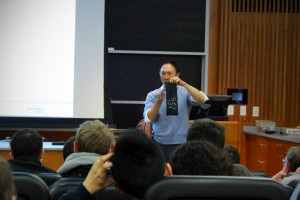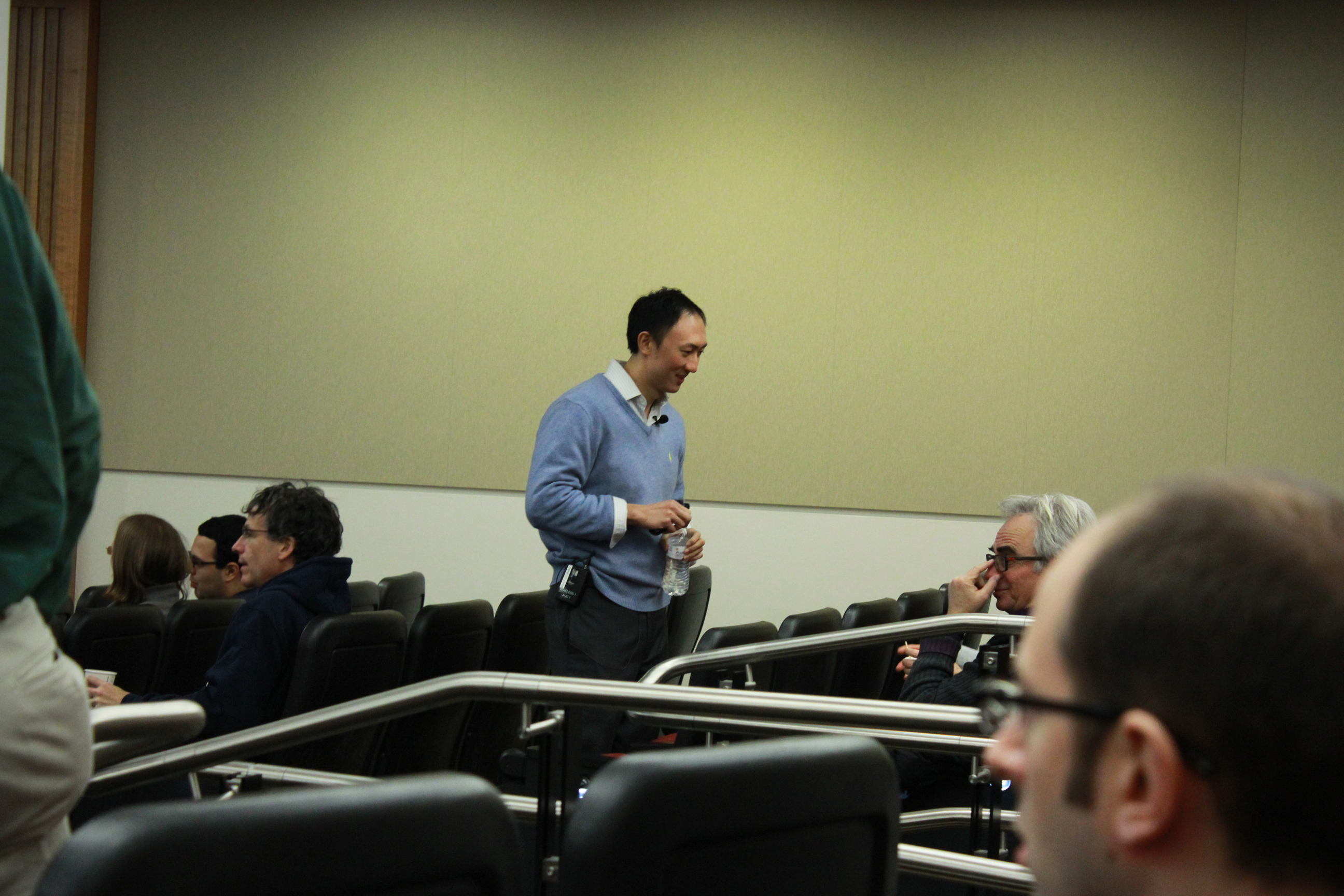
A modest-looking man converses with a female student seated toward the back of the auditorium. When asked if he is here to see the presentation, he replies, “I’m actually the speaker!”
David Hu is an Assistant Professor of Biology and Mechanical Engineering at the Georgia Institute of Technology. He holds a PhD in Mathematics from MIT and focuses his research on fluid mechanics.
Hu came to Boston University on Wednesday, January 30th to deliver a physics colloquium at the Metcalf Center for Science and Engineering in East Campus. The topic? Staying dry. “In just a fraction of a second, they’re seventy-percent dry,” says Hu as he begins to explain how and why animals instinctively shake it out after getting wet.
While it may look cute every time your dog shakes itself after a bath or a run in the rain, there is a reason behind this action—and dogs aren’t the only ones that do this. Even one of the smallest, peskiest creatures alive uses this skill to stay dry. The mosquito is one of the tiniest living creatures known to shake water off itself as a survival instinct. Hu explains that if animals do not remove excess water from their fur, they can freeze in cold temperatures. Mosquitos aren’t able to fly unless dry.
Although, the most interesting little creatures in this presentation were the fire ants that always stick together. No, really, they stick together when submerged in water so they float on the surface…like a lovely little ant-raft. Further, if one little ant happens to stray from the homemade floatation device, it won’t be in danger of drowning. This is because fire ants have the ability to maintain a thin layer of air surrounding their tiny bodies while walking under water, allowing them to breathe indefinitely until they reach the surface. Unfortunately, the same holds true for cockroaches. Think about that the next time you try to flush one of those suckers down the drain.
Not to worry though, mosquitos cannot breathe underwater—or fly through fog, apparently. Even better, every time a mosquito is hit by a falling raindrop, it is the equivalent of a person being hit by a falling Volkswagen Beetle. Whoever said a little rain never hurt should really talk to these guys after a slight drizzle.
As Hu begins to wrap up his presentation, he plays clips of a sheep, a dog, a bear, and even a female human doing the shake. A little Florence and the Machine and this whole thing would’ve been perfect.

